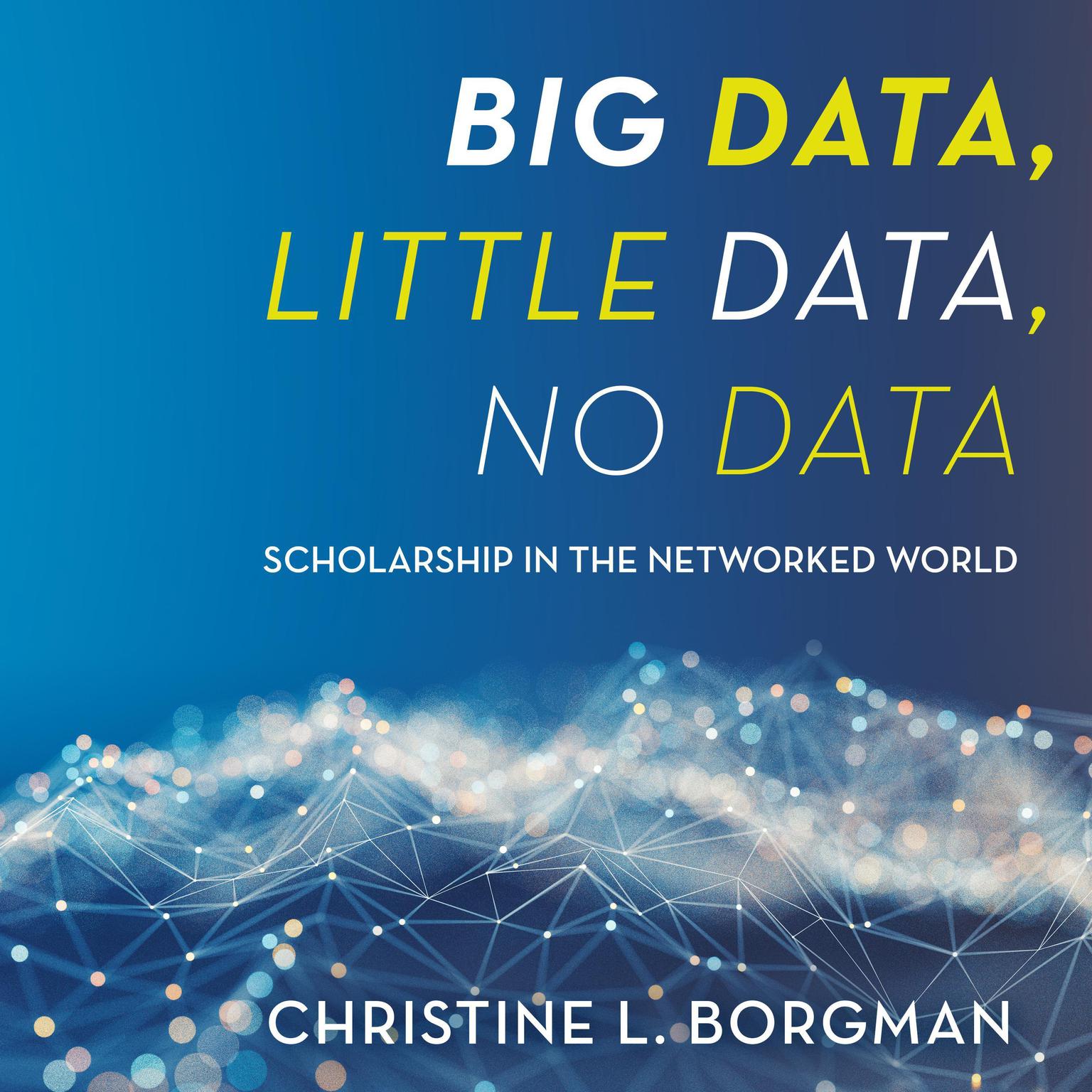 Play Audiobook Sample
Play Audiobook Sample
Big Data, Little Data, No Data: Scholarship in the Networked World Audiobook
 Play Audiobook Sample
Play Audiobook Sample
Quick Stats About this Audiobook
Total Audiobook Chapters:
Longest Chapter Length:
Shortest Chapter Length:
Average Chapter Length:
Audiobooks by this Author:
Publisher Description
"Big Data" is on the covers of Science, Nature, the Economist, and Wired magazines, on the front pages of the Wall Street Journal and the New York Times. But despite the media hyperbole, as Christine Borgman points out in this examination of data and scholarly research, having the right data is usually better than having more data; little data can be just as valuable as big data. In many cases, there are no data—because relevant data don't exist, cannot be found, or are not available. Moreover, data sharing is difficult, incentives to do so are minimal, and data practices vary widely across disciplines.
Borgman, an often-cited authority on scholarly communication, argues that data have no value or meaning in isolation; they exist within a knowledge infrastructure—an ecology of people, practices, technologies, institutions, material objects, and relationships. After laying out the premises of her investigation—six "provocations" meant to inspire discussion about the uses of data in scholarship—Borgman offers case studies of data practices in the sciences, the social sciences, and the humanities, and then considers the implications of her findings for scholarly practice and research policy. To manage and exploit data over the long term, Borgman argues, requires massive investment in knowledge infrastructures; at stake is the future of scholarship.
Download and start listening now!
Big Data, Little Data, No Data Listener Reviews
Be the first to write a review about this audiobook!
About Marguerite Gavin
Marguerite Gavin is a seasoned theater veteran, a five-time nominee for the prestigious Audie Award, and the winner of numerous AudioFile Earphones and Publishers Weekly awards. She has been an actor, director, and audiobook narrator for her entire professional career. With over four hundred titles to her credit, her narration spans nearly every genre, from nonfiction to mystery, science fiction, fantasy, romance, and children’s fiction. AudioFile magazine says, “Marguerite Gavin…has a sonorous voice, rich and full of emotion.”


